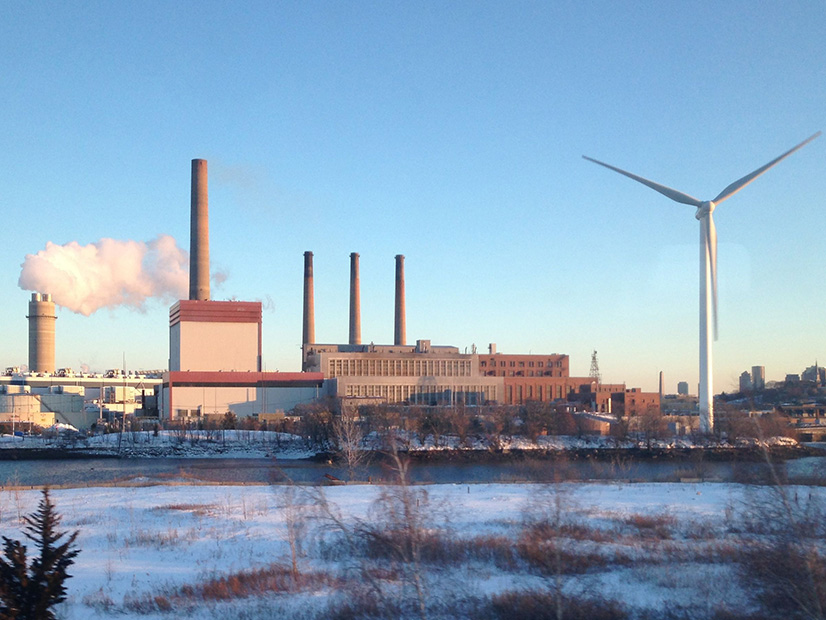
Environmental activists asked FERC on Friday to reject the results of ISO-NE’s Forward Capacity Auction 17, saying continued payments to fossil fuel generators is a risk to ratepayers and the climate.
The March 6 auction for the 2026/27 procurement period saw a slight increase in non-emitting generation obligations but still resulted in over three-quarters of the total obligations going to fossil fuel generation. (See FCA 17 Shows Clean Energy Boost, Endgame for Coal in New England.)
ISO-NE filed the results on March 21, asking the commission to find them just and reasonable and in accordance with the RTO’s tariff (ER23-1435).
More than 160 individuals and organizations wrote comments opposing the auction’s results. No Coal No Gas, a New Hampshire-based campaign to end fossil fuels that recently elected an activist slate of candidates to the Consumer Liaison Group’s (CLG) Coordinating Committee, coordinated the effort to reject the results. (See Climate Activists Take Over Small Piece of ISO-NE.)
“Based on blatantly inaccurate assumptions about the capacity, reliability and sustainability of fossil fuel-powered generators, the FCA 17 results not only violate ISO-NE’s mandate, but also call into question the legitimacy of the [Forward Capacity Market] as a whole,” the group wrote in its comments. “Thus, the arguments made in No Coal No Gas’s protests and comments are directly relevant to whether the ISO-NE followed its tariff when it conducted FCA 17.”
The group noted that the Merrimack Station did not win a capacity supply obligation, saying it was “grateful that our utility bills will not be used to subsidize coal as of June 2026.”
But it lamented that the auction “awards hundreds of millions of ratepayer dollars to keep the oldest, dirtiest, least economical fossil fuel-powered generators online for use as peaker plants. By propping up these failing fossil fuel-powered generators as standby peaker plants and sending bonus payments to base load generators, ISO-NE is preventing a just transition on our dime, and we call on FERC to intervene.”
The organization highlighted a 2019 white paper commissioned by the Sustainable FERC Project that found that capacity markets like those run by ISO-NE “have built-in biases against renewable energy.”
Commenters also criticized the structure of ISO-NE, arguing that the Forward Capacity Auction is part of a broader bias within the RTO favoring existing fossil fuel generators and providers.
“The current status quo financial subsidies and broken rules of ISO’s transmission grid has created a state of high ratepayer financial and physical vulnerability,” wrote Nathan Phillips, a Boston University ecology professor and one of the recently elected members of the CLG coordinating committee. “ISO-NE’s corporate arm, NEPOOL, is set up so that ratepayers are only one-sixth of the stakeholder groups involved in the grid.”
The Berkshire Environmental Action Team also filed comments in opposition, saying ISO-NE should “also aggressively prioritize demand response and other efficiency programs, and engage ratepayers in programs designed to reduce demand during peak events on the grid.”
Several companies with a financial stake in the auction — including Eversource, National Grid, Calpine, Dominion and Constellation — filed motions to intervene in the proceedings, though none filed comments.
ISO-NE has requested FERC rule on the auction results with an effective date of July 19.

